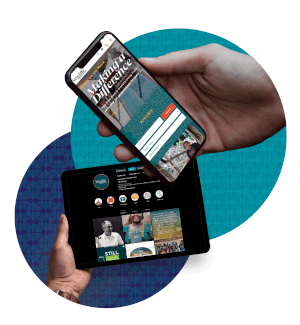The Book of Joy: Joy in Identity
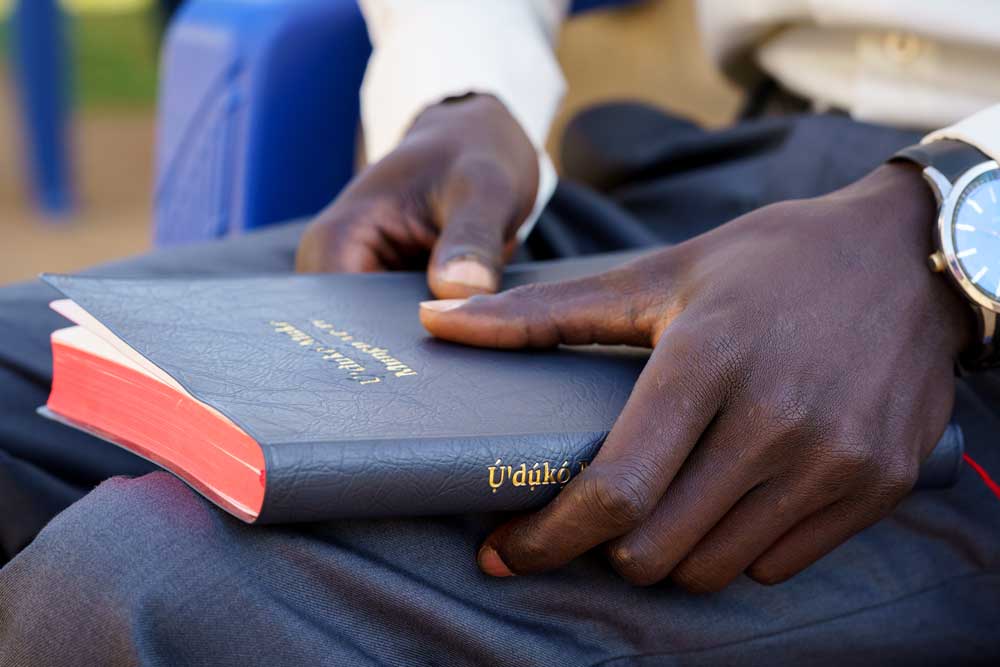
Keliko translation team members relay this phrase time and again. But it’s not their observation — it’s what others are saying about them. It’s a testimony to a new identity discovered in the process of Bible translation.
For centuries the Keliko language was only oral. Because it wasn’t written down, Keliko wasn’t recognized or taught in schools. As a result many Keliko who didn’t learn the majority languages couldn’t go to school. Others ridiculed them and many Keliko faced identity crises.
“[People] undermined them [and] did not offer opportunities to Keliko people,” recalled Bishop Seme Nigo Abiuda, one of the translators. “Even in schools, when Keliko students perform[ed] well in classes, they were denied their rights. They were called with all sorts of names like ‘foolish,’ ‘poor’ and others. … It also made some Keliko fear to identify themselves as Keliko.”
People continued to deride the Keliko even as young pastors were selected to become translators for the Keliko Scriptures. “Many undermined and continued to discourage the people by saying we cannot manage to translate the Word as young as we were,” Bishop Seme said.
“When the translation process was succeeding and some portions were printed and used, people began to wonder,” continued Bishop Seme. “Then the government approved Keliko to be taught in lower [grade levels] in all the government and private schools.”
This spurred on the translators and encouraged the Keliko believers. The Keliko church experienced explosive growth as newly translated Scriptures were proclaimed in services, gatherings, youth conferences, funerals and on the radio.
Women who had not been able to attend school now began learning to read through a robust literacy program. They started filling roles in the church and the translation program. The translators’ wives began to grow in their understanding of the Keliko Scriptures and transformed into strong leaders, able to teach and lead women in ministry.
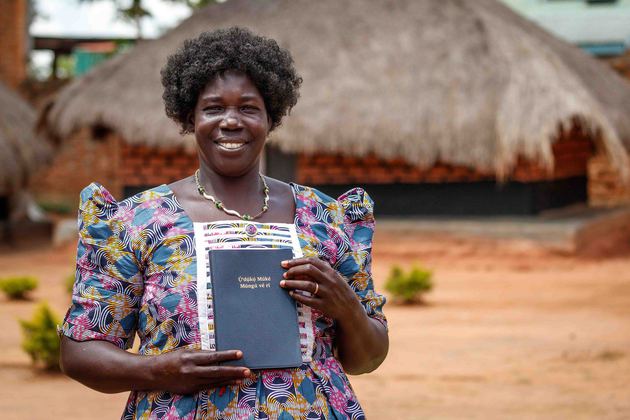
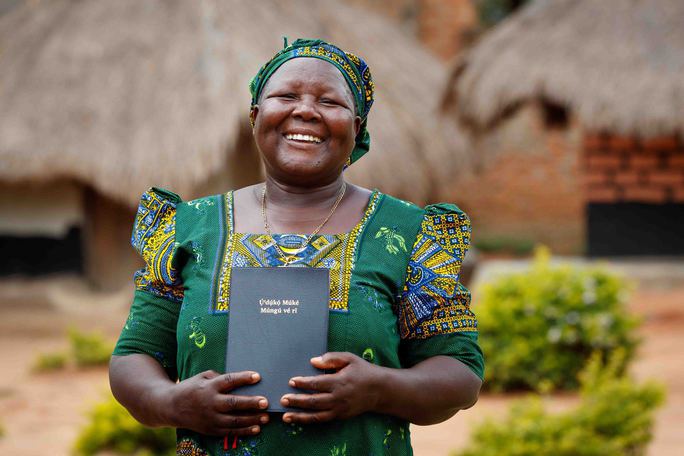
Mary Maka Seme and Margaret Isaac, both wives of translators, learned to read during the translation process and are now actively involved in ministry.
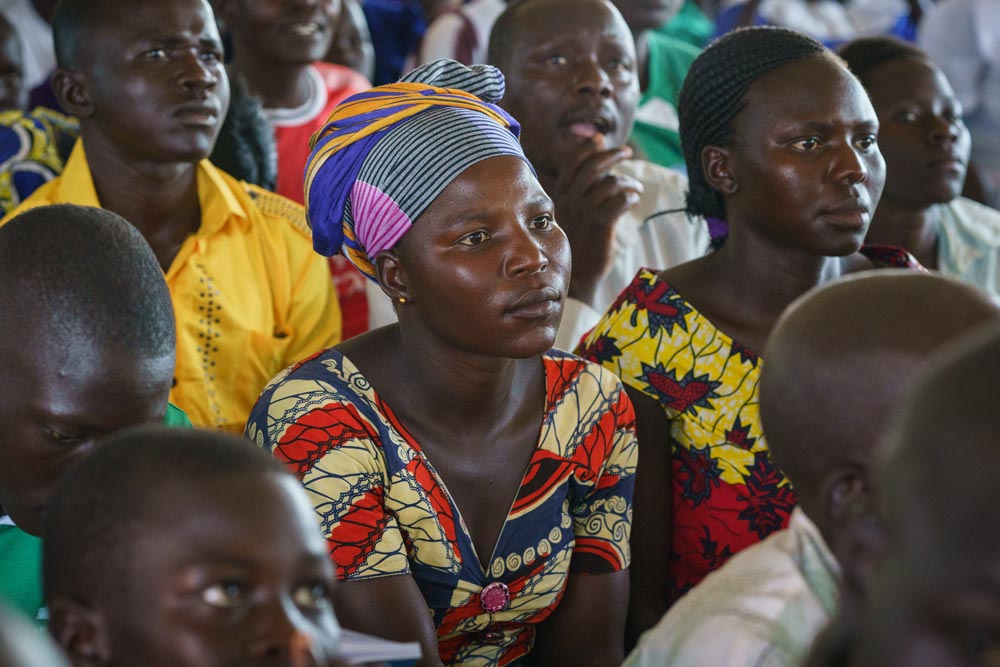
College student Jane, a niece of one of the original translators, was visiting her mother at the settlement. “When I first saw the conditions, I wept,” she said. But seeing her mother’s joy in learning to read has sparked a desire to learn to read the Keliko Scriptures.
Even when the Keliko were displaced to the Democratic Republic of the Congo and Uganda, the confident translation team and its church partners worked with incredible resolve to complete their New Testament translation. People in Koboko and the district took notice of these remarkable people.
When the day of the New Testament dedication dawned, local people lined the streets as translators and pastors marched with the Keliko Scriptures in a wooden ark. Musicians and groups of Keliko proudly advanced behind banners identifying their refugee settlements. Dignitaries from near and far came to pay their respects.
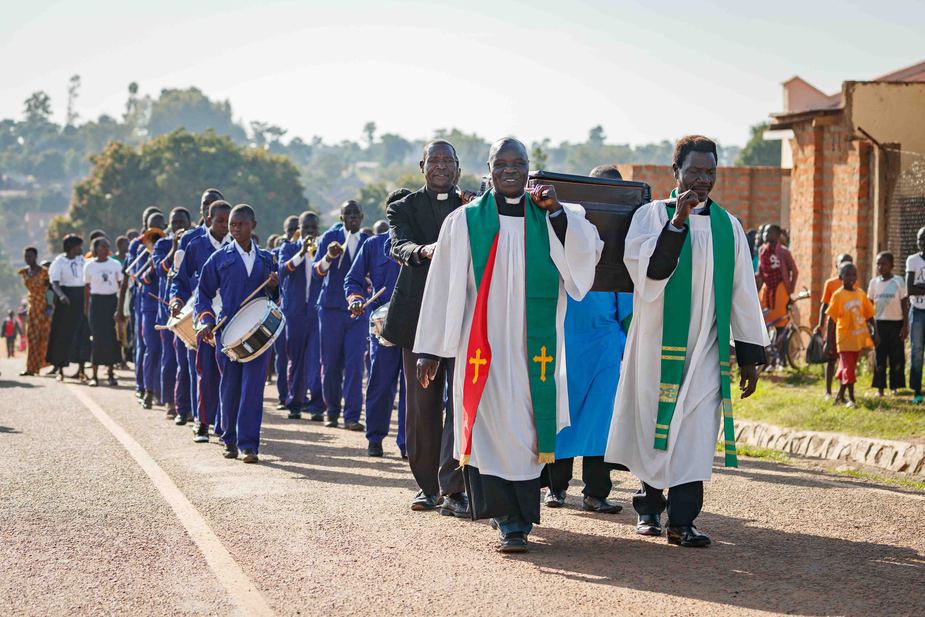
Translators and cousins, Ezekiah Dada and Enos Dada, carry the ark holding the Keliko New Testaments through the streets of Koboko, Uganda.
Koboko Municipal Council Mayor, Koboko District, Dr. Wilson Sanya, held up the Keliko New Testament and said, “I have come to see what the Lord has done and I have it here in my hand. … I have a lot of friends that believe that this is the beginning of peace [in South Sudan] that is being dedicated through this Bible.”
The translation project has helped the Keliko people gain recognition and redemption. But most importantly, the Keliko Scriptures have created something the people have desired for a long time — joy in a new identity in Christ. The people once taunted as “fools” possess wisdom beyond that of this world through the Word of God.
Bishop Seme reflected on that journey: “It surprised many people [who thought] we would not reach … that level. Also it made the Keliko people who did not identify themselves come out. The Keliko who didn’t want to speak the language are now seriously learning the language. And the Keliko people are now proud of themselves.
“When you hear God’s Word in your language you feel proud and closer to Him.”
"I said, 'Yes, this is our Bible.'"
Sign Up for Weekly “God Sightings” Text Messages
Each week, you can receive an update on what God is doing around the world — directly to your phone! Stay informed, inspired and encouraged by the latest news, and join us in praying for God’s name to be made known among the nations through the work of Bible translation.
Text SIGHTINGS to 407-358-0916 to get started.


